
With Super Tuesday behind us, all eyes are on Armageddon Tuesday on March 15, when Florida and Ohio vote along with Illinois, North Carolina and Missouri. Florida is widely regarded as the crucial test for Marco Rubio, and Ohio is the whole point of John Kasich still being in the race. But don’t overlook how much the votes this weekend and on Tuesday can affect the race.
Four states vote today (Kansas, Kentucky, Louisiana, and Maine), Puerto Rico tomorrow, four more on Tuesday, plus DC, Guam and the Wyoming county conventions on March 12. That’s 178 delegates selected this weekend, 328 by Tuesday, another 28 plus some of Wyoming’s 29 on the 12th (the Wyoming process is complicated). Most of these are proportional states, so not as decisive in the delegate counts as Florida or Ohio (although the winner will take most of the delegates in Maine, Puerto Rico, Michigan and Idaho, and all of them in Mississippi if the winner cracks 50% of the vote). But even well past the “expectations game” stage, momentum and media narratives still matter a lot. And the biggest reason why they matter is Marco Rubio.
Factions and Unity
Rubio throughout this race has been the biggest “X factor” because of the kind of candidate he is. There are two basic types of primary candidates, both of whom have different strengths and weaknesses: Factional candidates and Unity candidates.
A Factional candidate starts with a cohesive, fanatical hard base of support that sees no other candidate in the race as a true substitute, and then tries to use momentum to build out from that core. Trump and Cruz are Factional candidates in that sense; Kasich has been trying to build a similar bond, although thus far a faction larger than single digits has been isolated to New England. Factional candidates often get stalled by the intensely negative reaction they provoke in the rest of the party, much less the general electorate, but they can win, and the more divided a field is or the larger their faction, the stronger they are. Obama 2008; Reagan 1976 and 1980; Bernie Sanders 2016; Buchanan and Forbes 1996; Santorum 2012; Huckabee 2008; Ron Paul 2008 and 2012; Howard Dean 2004; Jesse Jackson 1984 and 1988; George Wallace 1976; these were all Factional candidates, some successful, some not.
The alternative is to run as a broadly-acceptable Unity candidate with no factional core. George W. Bush 2000, Bill Clinton 1992, Bob Dole 1996, George H.W. Bush 1988, John Kerry 2004, Walter Mondale 1984, but also Rick Perry and Tim Pawlenty 2012, Hillary Clinton 2016 and 2008, Rudy Giuliani 2008. While those candidates can have a much bigger upside, they are way more susceptible to sudden collapse if their voters lose faith that they have a path forward, because the bulk of their supporters are not hard-core devotees but people who like rather than love the candidate and see them as acceptable and a winner. Of course, whether a candidate runs a Factional or Unity campaign can also vary based on the conditions of the election and the alternatives. John McCain and Al Gore both lost as Factional candidates of their parties’ moderates (McCain in 2000, Gore in 1988) and won the nomination as Unity candidates (McCain in 2008, Gore in 2000); Mitt Romney, despite a core of committed Mormon support, was basically a Unity candidate in 2008 and a failed one, but won the nomination as the Factional leader of the moderates and establishment in 2012.
Rubio is a classic Unity candidate – he competes in every region of the country, with Cruz for conservatives, with Kasich for moderates, and with Trump for “beat the Democrats” voters. As we’ve seen repeatedly throughout this campaign, Rubio’s vote has been volatile and heavily dependent and on late deciders rather than a long-committed faction:

I continue to believe that this candidate profile means Rubio is the guy best suited to win majorities in a two-way race, for the reasons I explained after Super Tuesday – much like Bill Clinton in 1992, who won just 1 of the first 11 states but ended up battering Jerry Brown once he got down to a head-to-head matchup. But the downside is that the actual, committed, unwavering core of Rubio’s support (outside his home state, and it’s not even enormous there) is probably not more than 10-15% of the voters in most places. If the rest of his potential support in any given state starts to see him as an unviable candidate, he could collapse in a hurry, as Unity candidates have been known to do.
The stakes have been raised by Ted Cruz’s announcement that he’s opening 10 offices in Florida. None of the polls show Cruz with even the slightest chance to win Florida, and there are no delegates for finishing second, so unless a serious Cruz bid in the state carefully threads the needle of targeting only Trump voters, it looks mostly aimed at driving Rubio out of the race even at the cost of handing 99 delegates to Trump, and for good measure shattering any discussion of the kinds of “strategic voting” for Rubio in Florida and Kasich in Ohio that is needed to keep Trump from winning both.
Which would be a shame; a new Florida poll out by the Tarrance Group (conducted Feb. 29-March 2, so before and after Super Tuesday) has Trump 35, Rubio 30, Cruz 16, Kasich 9 and Carson 5, with 30% of voters saying they’d “never” vote Trump. The poll is apparently a voter-file poll, which is important given that Florida is a closed primary, and those so far have shown a much tighter race than other Florida polls with shoddier methodologies. But the timing of the poll and the fact that it was taken by a partisan outfit make it less than wholly reliable as well.
Anyway, offices are cheap, the brand-new Cruz offices may not even be operational yet, and Cruz has a lot of money; there are three other, related possibilities here besides a kamikaze attack on Rubio:
1) Cruz is doing a head-fake here aimed at convincing Rubio to drop out before Florida, but won’t actually commit a lot of ad money, full-time staff or candidate appearance time to the state unless that happens first;
2) Cruz is doing a head-fake here aimed at Rubio’s voters in the pre-March 15 states, designed to feed a narrative that cracks Rubio’s soft support;
3) Cruz really thinks Rubio might drop out before March 15, and is planning for the possibility of having to swiftly ramp up a full-scale campaign there.
In any case, all of those scenarios – as well as the scenario where Rubio is playing against a fully-engaged Cruz in Florida – come down to the same thing: whether Rubio looks as strong or stronger as an anti-Trump option by March 15 than Cruz does. And that’s why this weekend matters.
I’ll lay down a marker here: among Kansas, Kentucky, Louisiana, Maine and Puerto Rico, Rubio needs at a minimum two wins or three first-or-second-place finishes. I won’t bore you with the scarce, filmsy polling we have in any of these places, all of which is likely to be proven good or bad in a few hours anyway, but the two best shots for wins ought to be Puerto Rico and Kansas. In Puerto Rico, the only one of the five that isn’t a closed (Republicans-only) vote, Rubio has the advantage of being a fluent Spanish-speaker and has the backing of Luis Fortuno, the last Republican* Governor, but also has the disadvantage of having taken a fairly hard-line stance against a mainland bailout for the island. Kansas should in theory be good turf for Rubio: it has a broad mix of conservative and moderate Republicans, and again he has the backing of Governor Sam Brownback and a number of other influential figures in Kansas. Its caucus may look more like those in Minnesota and Iowa, where Rubio did very well, than like Oklahoma. Kansas also has, like Georgia, a growinng population of Hispanic Republicans (Brownback carried Hispanic voters in the 2014 general election, just as David Perdue did well with them in Georgia). Non-white voters were 12% of the primary in Georgia, and Rubio won them 34-29-19-14-3 vs Trump-Cruz-Carson-Kasich, while tying Cruz for second among white voters. Cruz, meanwhile, will be fighting for the state’s harder-line anti-immigrant vote (Kris Kobach has endorsed Trump). On the other hand, Brownback – like Fortuno and like Bobby Jindal, who has also backed Rubio – is not especially popular at home at the moment.
We won’t get exit polls in any of today’s states, so we won’t have much to go on in figuring out what happened but the final results. But along with Tuesday’s votes, the results will show us a lot about whether Rubio’s support is still as strong as it has been for the past month (outside of New Hampshire), or whether his “momentum” voters are no longer buying his chances. A good day today will go a long way towards restoring his position in the media “narrative,” which Cruz has been trying to collapse with his move in Florida; a bad one will accelerate Cruz’s effort to get him out of the race.
Rubio supporters may feel, with some justice, that this is an unfair burden for Rubio to face ten days before he gets to his home state and out of the end of the best turf for Cruz. But then again, Rubio doesn’t need to run the table today, he just needs to look as strong or stronger than either Cruz or Trump and avoid a whole bunch of third place finishes. And as I noted before Super Tuesday, it wasn’t especially fair to Cruz that he had a higher bar for success on Super Tuesday than Rubio did, but that was the nature of the calendar; so too is this. By Sunday night, and certainly by Wednesday morning, the Rubio-Cruz-Kasich endgame may be a lot closer than we think.
* – Puerto Rico has its own parties, but Fortuno is de facto a Republican and recognized as such.

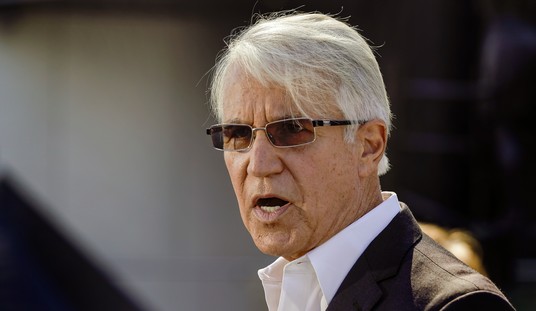
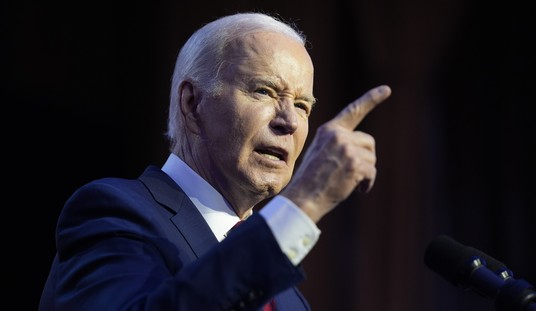

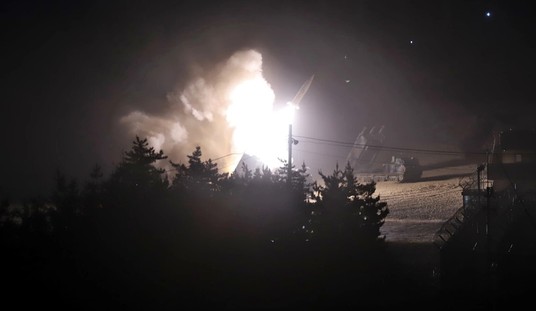

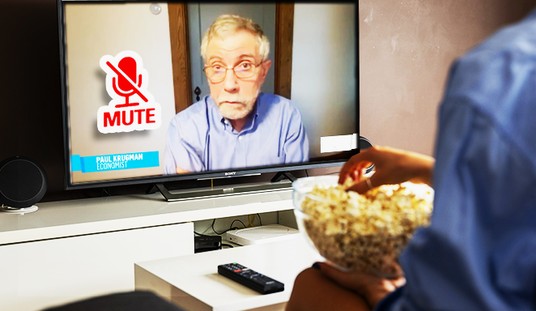
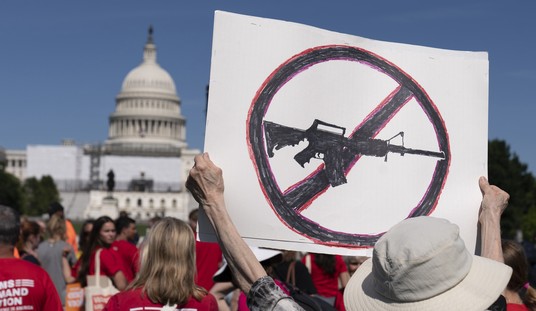
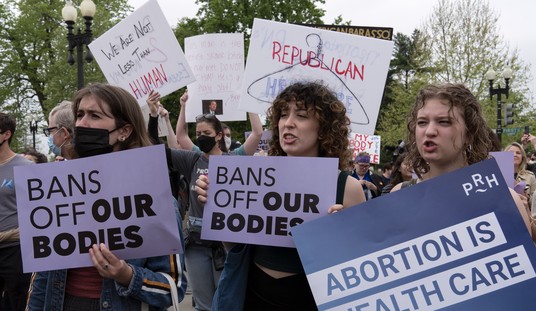
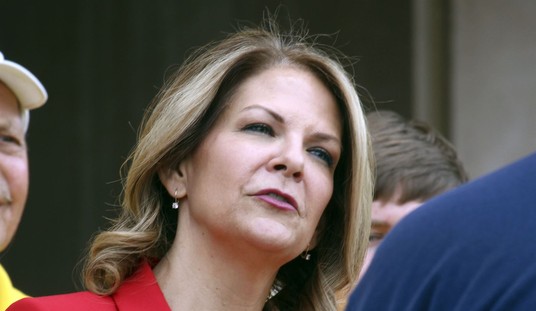
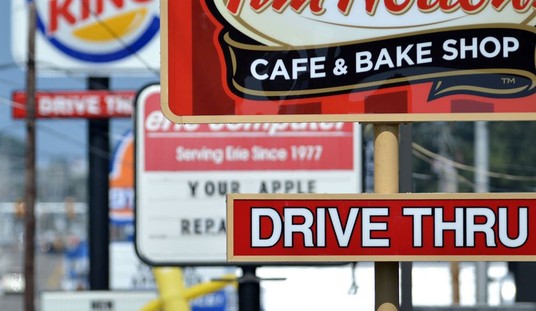


Join the conversation as a VIP Member